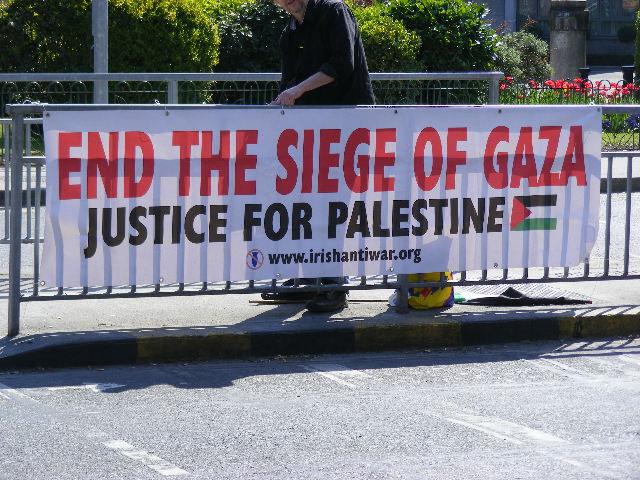 Ireland's Minister for Tourism is in America at the moment in an effort to encourage more of you to come on over for a visit. Great stuff. American visitors get a good welcome here and, well, there are many tourism related enterprises that could use the business.
Ireland's Minister for Tourism is in America at the moment in an effort to encourage more of you to come on over for a visit. Great stuff. American visitors get a good welcome here and, well, there are many tourism related enterprises that could use the business.There two things Minister Mary Hanafin should tackle to make the visitor's experience even better. Both relate to driving in Ireland, which can be stressful enough for visitors to this country. I'll deal with one of those two today.
The first issue relates to road tolls and one toll in particular. A few years ago the government eliminated the toll booths on the M50, which is the main highway that runs around Dublin and connects the Belfast road with the roads to the south and west. It's a key road.
When the government got rid of the toll booths they didn't just forgo all that toll money. Oh, no. They installed a license plate scanning system that records each trip on the road as it crosses the River Liffey.
This development freed up the road; no more lengthy back-ups at the toll booths. All car owners can register their car so that the toll is automatically deducted from an account via their credit/debit card. Kind of like the E-Z Pass system only you don't have to slow down. You can zip through at 65MPH. There are no booths at all. No toll booths where tourists and others can pull up and pay the toll.
That's the crux of the problem. For tourists this becomes a real hassle. The car rental companies are at pains to point out to tourists that they must pay these tolls if they use the M50. And, the only way to pay the toll is to find a store that has the facility to let you do so.
There are a couple of stores near where I live that provide this service, but none of them has easy parking, which only increases the hassle. A tourist has to (a) find one of these stores and then (b) find somewhere to park near to the store and go pay the €3 ($3.65). Oh, and they have to know the license plate number when they get to the counter or it's back to the car to check.
I've never had to go looking for one of these pay-points, but it is easy to imagine how frustrating this would be when you've arrived in a strange country and you're just figure out the roads. You just want to get where you're going and begin to relax and enjoy yourself, but no.
Having to remember to pay the toll is bad enough, but then you must hunt down a shop that may or may not exist, in a town you don't know, with no phone and most likely no suitable map. And you have to do that by 8pm the day after you cross the bridge.
And you may not even realize you've even crossed the bridge {photo of bridge's underside above}. I've talked to a couple of Americans who've driven over that bridge without even being aware of it. It's not hard to miss the signs indicating you've crossed the bridge and there's absolutely no indication on the road itself: no change in surface or even paint, no steel structure overhead that is a feature of most bridges, nothing that shouts out, "This is the toll bridge you've heard about."
This is just plain stupid. Tourists should be exempt from this toll or at the very least, paying it should be no hassle. Instead you have visitors coming here whose last experience of Ireland will be a charge on their credit card for a toll they knew nothing about AND a €50 ($60) fine. What sort of lasting impression is that creating?
This isn't rocket science. The government should exempt tourists, but failing that at a minimum they should make it so that rental companies can add these costs (& nothing more) to the rental bill in order to minimize the upset to tourists. It's simple common sense.











